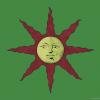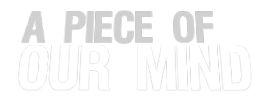Nintendo has this weird place in gamer culture where it alternates regularly between a greatly loved company and a largely despised one. Generally, it’s not because of anything Nintendo does, per se—but more often it’s how ‘contemporary’ gamers react to a company that, by and large, doesn’t change much. The gaming world changes around it, and thus opinions are adjusted as if Nintendo itself is making large, drastic changes. This worked badly for it in the PS2/Xbox era, where the Nintendo Gamecube’s inferior third party support crippled it, but it has worked well for the Wii U, the only real ‘gaming console’ in a race between two other systems that are largely just cheap gaming PCs. Still, that doesn’t mean Nintendo’s not capable of shady dealings—and sometimes the criticism it receives (such as in the Youtube controversy) is well-deserved.
This will be remembered as one such time; a small offense that, while arguably small, has big implications for the way Nintendo is being run, and its future plans in the mobile market.
So, on Nintendo’s Japanese eShop, you’ll find both first-party Nintendo games and third party games. But as Japanese shoppers are starting to notice (and as Kotaku points out), there’s an odd discrepancy in the prices of the games: namely, it appears as if Nintendo’s first party games are significantly cheaper than they're supposed to be.
Is Nintendo actually charging less for their games? No, but they are using a little marketing trick to make their own games seem more appealing. See, for first party games, they list the price on the marketplace without the tax—but for third-party games, the tax is included. So a game like Splatoon, developed by Nintendo, looks to the casual viewer to cost only 5,700 yen. But a game like Dragon Quest X, developed by Square Enix is listed as 4,104 yen, with Tax included. Yes, Splatoon still costs more, but if Taxes were taken into account it would be listed as 6,156 yen.
Now here’s the real sketchy part: on the Square Enix online store, Dragon Quest X is listed without tax. The same applies to all Japanese companies, it’s almost always listed without tax included.
Nintendo, it appears, is trying to ‘inflate’ the prices of third party games to make their own games look all the more appealing. Now, in its defense, it does say that taxes are included in the price of these third party games, but this is still very sketchy.
It bodes badly for Nintendo, and even worse in its confidence in third party developers… hopefully this doesn’t lose them some much-needed third-party support.

 by
by 


Comments
Comment on this Article in our ForumMore GamerzUnite News
Are We Being Controlled in a PC Game by Aliens?
New UFO Film proposes we might!
Explore an Eerie Archipelago in Dredge
A fishing adventure gone bad...
Metasport Arena and Burrst Open the NIL Door for College and High School Gamers
The future looks bright...
Automation Goes Too Far in The Last Worker
A bleak future for anyone looking for a job...
Alien Infestation takes over in From Space
Liberate the Earth in this fun new action-shooter...
The Ascent Cyber Heist DLC takes Cyberpunk Heists to a New Level
New Missions, Side Quests and more...